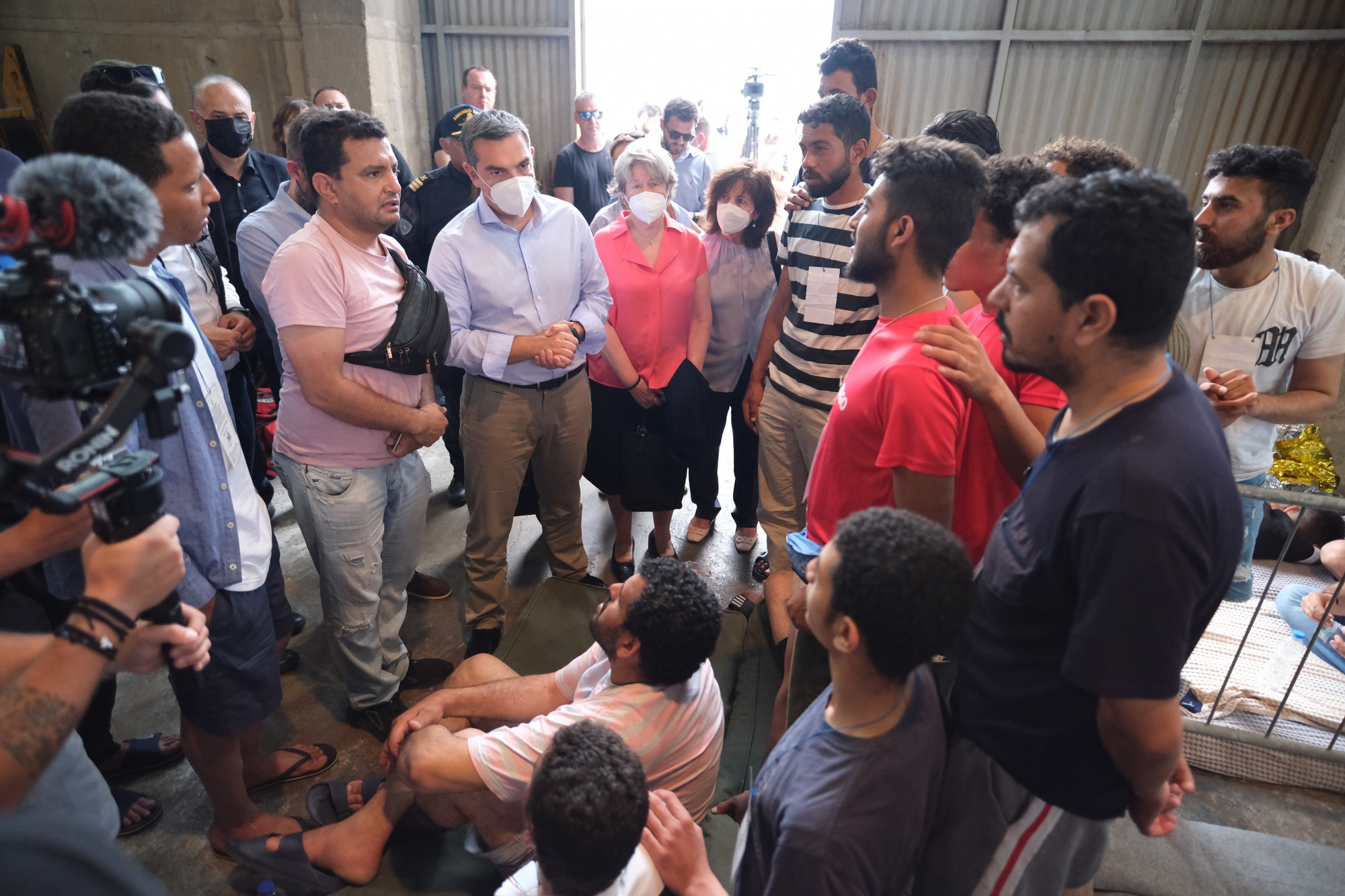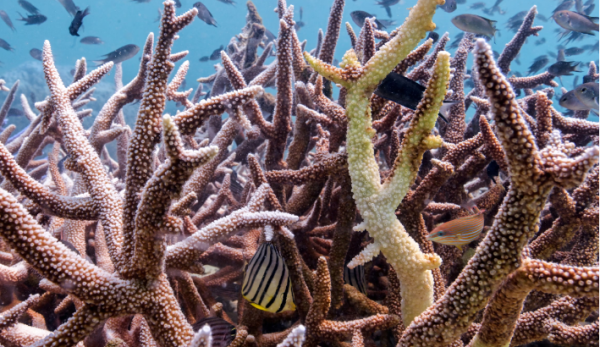
Alexis Tsipras granted an interview to the Italian newspaper La Repubblica, with the shipwreck in Pylos being the main topic he referred to.
In his interview, the president of SYRIZA, Alexis Tsipras, underlines that the fatal shipwreck shows how Europe has failed, how the policies of Georgia Meloni and Kyriakos Mitsotakis have prevented Europe from considering the rescue of human lives at sea as “absolute priority”.
As the journalist notes, for the former Greek prime minister, “the immigration challenge cannot turn into a competition for who has the worst immigration policies, between Mitsotakis and Meloni.”
Contradictions of the Greek Coast Guard
Regarding the tragic incident off Pylos, Alexis Tsipras refers to the “contradictions” of the Greek Coast Guard and promises that “it will not stop until the truth is revealed”. At the same time, he clarified that no one can consider that this conclusion could not have been avoided.”
In particular, when asked about the “different versions that the Greek coast guard, Frontex and NGOs continue to give about the shipwreck”, the president of SYRIZA underlines, among other things, that “traffickers’ networks, especially in North Africa, have become stronger, while the causes of immigration are getting worse. The result is that such tragic incidents are increasing and will continue to increase in Europe.”
Regarding the “contradictions” of the Greek coast guard, Mr. Tsipras notes that “investigations are ongoing. One thing is clear, a boat with hundreds of people on board that was watched for 16 hours by the national rescue authorities of their own jurisdiction, ended up sinking, taking with it hundreds of people, including children. No man can think that this epilogue could not have been avoided, in the Europe of 2023.”
“There needs to be honesty about what happened”
“The Greek Coast Guard claims that it attempted to approach the vessel with a rope in order to check the conditions inside. However, it had previously denied this, arguing that a member state could not intervene in international waters, even though it was their area of responsibility and rescue. A serious matter under investigation. But above all, honesty about what happened is required. We will not stop until the truth is revealed,” he added.
Regarding the strict immigration policies and the policies towards NGOs, Mr. Tsipras commented that “the immigration policy changed during the government of Kyriakos Mitsotakis and mainly, after the events in Evros in 2020, in an attempt by Turkey to instrumentalize immigrants. During that period, K. Mitsotakis turned immigration into an issue of protection from Turkish aggression and it stopped being an issue that concerned human lives.
A more balanced approach to the issue is needed, which will recognize the issue of protecting migrants, but also the fight against traffickers, which will promote economic and social cooperation to ensure the development of the countries of origin and reception. Which will strengthen the role of the EU and lead to the creation of a more effective repatriation mechanism for those who are entitled, based on European and international law, to be repatriated”.
For the condemnation of Greece for Farmakonisi
At the same time, he refers to the case of Greece’s conviction by the ECtHR for the shipwreck in Farmakonisi in 2014 and underlines, among other things, that “NGOs must respect the laws. However, their role is important in protecting migrants and in many cases they have saved lives and managed situations better than us, the EU. To fight far-right propaganda, we need to put forward effective integration policies in local societies.”
For the New York Times video
Asked about the video published by NYT, Mr. Tsipras replied that “we have often raised our doubts about the immigration policy of Kyriakos Mitsotakis. We have called for investigations into the complaints about push backs. The incident mentioned in the video is serious and is being investigated, as such acts are unacceptable, not only because they put lives at risk, but also because they violate every concept of the rule of law. If these “deportations” as the European Union commissioner Ylva Johansson characterizes them, will be accepted in Greece and in Europe, we cannot talk about European values. A challenge that particularly concerns Meloni’s Italy and Mitsotakis’ Greece”.
Latest News

WTTC: Travel & Tourism to Create 4.5M New Jobs in EU by 2035
This year, international visitor spending is set to reach 573 billion euros, up by more than 11% year-on-year

IMF: US Tariffs Shake Global Economy, Outlook Downbeat
IMF slashes global growth forecast to 2.8% as U.S. tariffs create uncertainty and ‘negative supply shock

First Step Towards New Audiovisual Industry Hub in Drama
The project is set to contribute to the further development of Greece’s film industry and establish Drama as an audiovisual hub in the region

Airbnb Greece – Initial CoS Ruling Deems Tax Circular Unlawful
The case reached the Council of State following annulment applications filed by the Panhellenic Federation of Property Owners (POMIDA)

Mitsotakis Unveils €1 Billion Plan for Housing, Pensioners, Public investments
Greek Prime Minister Kyriakos Mitsotakis has announced a new set of economic support measures, worth 1 billion euros, aiming to provide financial relief to citizens.

Alter Ego Ventures Invests in Pioneering Gaming Company ‘Couch Heroes’
Alter Ego Ventures' participation in the share capital of Couch Heroes marks yet another investment by the Alter Ego Media Group in innovative companies with a focus on technology.

Corruption Still Plagues Greece’s Driving Tests
While traffic accidents continue to claim lives on Greek roads daily, irregularities and under-the-table dealings in the training and testing of new drivers remain disturbingly widespread

Pope Francis Died of Stroke and Heart Failure Vatican Confirms
As news of the official cause of death spread, tributes poured in from across the globe. The 1.4 billion-member Catholic Church is united in grief, remembering a pope who championed inclusion, justice, and compassion

Increase in Both Museum Visits, Revenues for 2024
As expected, the Acropolis was the top archeological site in the country, followed by Sounion, Mycenae, the ancient theater of Epidaurus, and Vergina in northern Greece

Where Greece’s Tourists Come From: A Look at 2025’s Top Visitor Markets
The United Kingdom continues to hold the top spot as the largest source of incoming tourism, with 5.6 million seats booked for Greece this summer — up 2.2% from last year. This accounts for 20% of all international air traffic to Greece
















![Ξενοδοχεία: Μεγάλο το ενδιαφέρον για επενδύσεις στην Ελλάδα – Η θέση της Αθήνας [γραφήματα]](https://www.ot.gr/wp-content/uploads/2025/03/Athens-hotels-90x90.jpg)
























 Αριθμός Πιστοποίησης
Αριθμός Πιστοποίησης